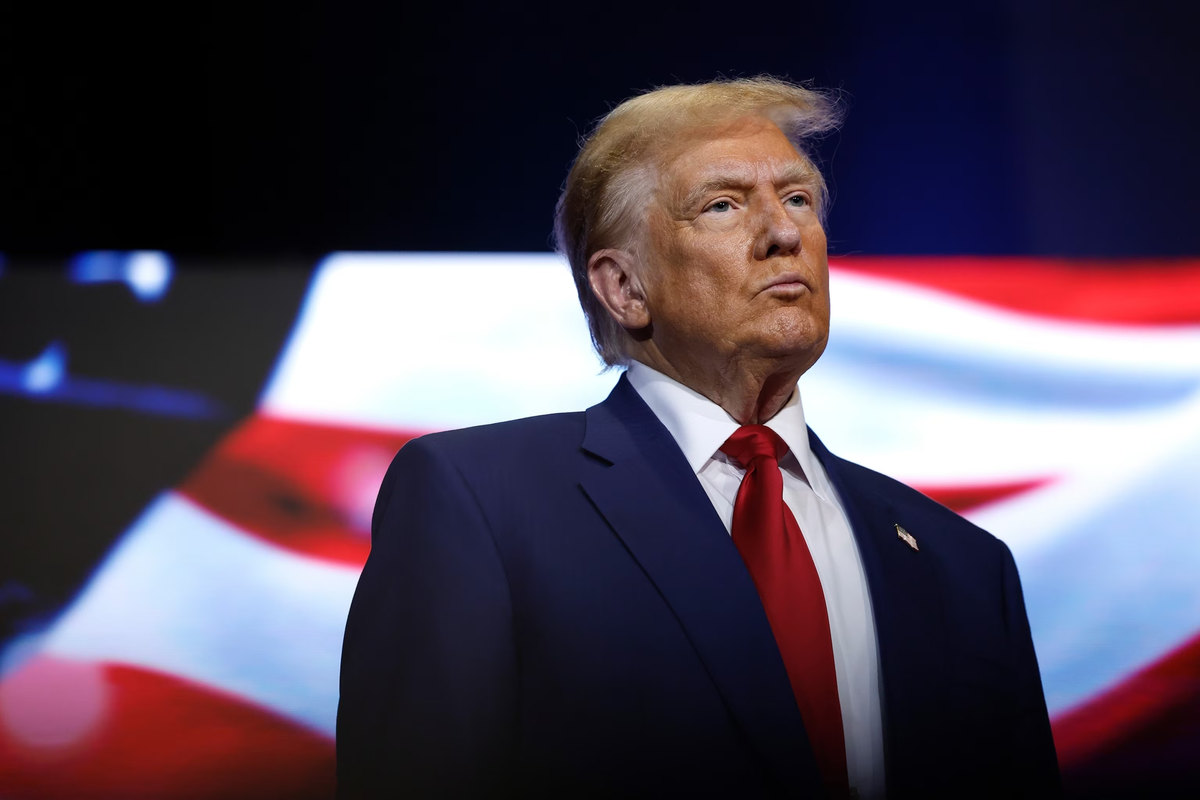The End of Accountability? Trump’s Sentencing and the Future of Governance
A sentenced felon poised to retake the presidency has faced zero consequences for his crimes. Here's what that means.

In a courtroom turned virtual stage, Donald Trump has made history once again - this time as the first president-elect to face criminal sentencing.
The verdict: unconditional discharge for 34 counts of falsifying business records. No jail time. No probation. There is no tangible punishment beyond the symbolic weight of conviction itself. Judge Juan Merchan's ruling is a watershed moment for American democracy. A man convicted of felony charges is days away from retaking the highest office in the land. The sheer improbability of this scenario would have seemed absurd mere years ago.
We're in uncharted territory: criminal conviction now carries no political sentence.
Traditional wisdom held that serious legal troubles would torpedo any presidential aspirations. That wisdom lies shattered, along with countless other norms of American political life. Future candidates might view criminal charges not as career-ending catastrophes but as badges of defiance against a system they claim persecutes them. What happens when being a convicted felon becomes a feature rather than a bug in certain political circles?
A convicted president wielding the power of federal law enforcement presents some uncomfortable problems. Would a Department of Justice led by someone with a criminal record maintain credibility? You can ask the same question about military leadership, diplomatic relations, and executive authority over the federal judiciary. These aren't academic concerns. They're practical governance challenges that must reshape the relationship between the presidency and the rule of law.
The real story might not be about legal consequences but their increasing irrelevance in modern American politics. When Trump called his conviction a "political witch hunt" during sentencing, he was reinforcing a narrative where objective truth matters less than tribal loyalty. Facts become malleable, courts become partisan battlegrounds, and justice transforms into a team sport.
Different political tribes seem now to inhabit entirely separate information ecosystems. One person's convicted felon is another's persecuted hero. The legal system's carefully weighted evidence dissolves in the acid bath of partisan media interpretation. Traditional gatekeepers of truth—courts, journalists, and academic experts—find their authority increasingly challenged by alternative narratives spreading through social media networks with the speed and virulence of a digital pandemic.
The judiciary's careful attempt at normalcy during the trial fails to match its broader context. "Once the courtroom doors were closed, the trial itself was no more special, unique, and extraordinary than the other 32 cases in this courthouse," Judge Merchan claimed. That's a lovely thought. But outside those doors, nothing about this case resembles normal judicial proceedings. When was the last time a criminal defendant successfully used their sentencing to fundraise millions? When did conviction last boost someone's political prospects?
If criminal conviction no longer disqualifies candidates from the presidency, what legal deterrent remains for corruption in high office? The traditional guardrails preventing abuse of power relied heavily on the assumption that criminal charges carried both legal and political consequences. Remove the political repercussions, and half of that equation vanishes.
Legal authority requires public buy-in to maintain its force. When significant portions of the electorate reject the legitimacy of courts and prosecutors, the entire edifice of justice begins to crack. No amount of carefully reasoned judicial opinions can bridge a divide between Americans who no longer share basic assumptions about truth and accountability.
Can a system of laws survive when large segments of the population view those laws as weapons wielded by political opponents? Does criminal justice retain meaning when conviction becomes a political asset rather than a liability? The answers, adequate or not, will determine whether American democracy adapts to this new landscape or fractures under competing realities.
As Trump heads into another presidency with a felony conviction in tow, we're writing new chapters in American political history with every passing day. The only certainty is that the old rules no longer apply. Whether that means democratic evolution or civic decay remains to be seen, but one thing is clear: we can't return to the way things were. The genie of post-truth politics has escaped its bottle, and no court verdict can stuff it back in.


